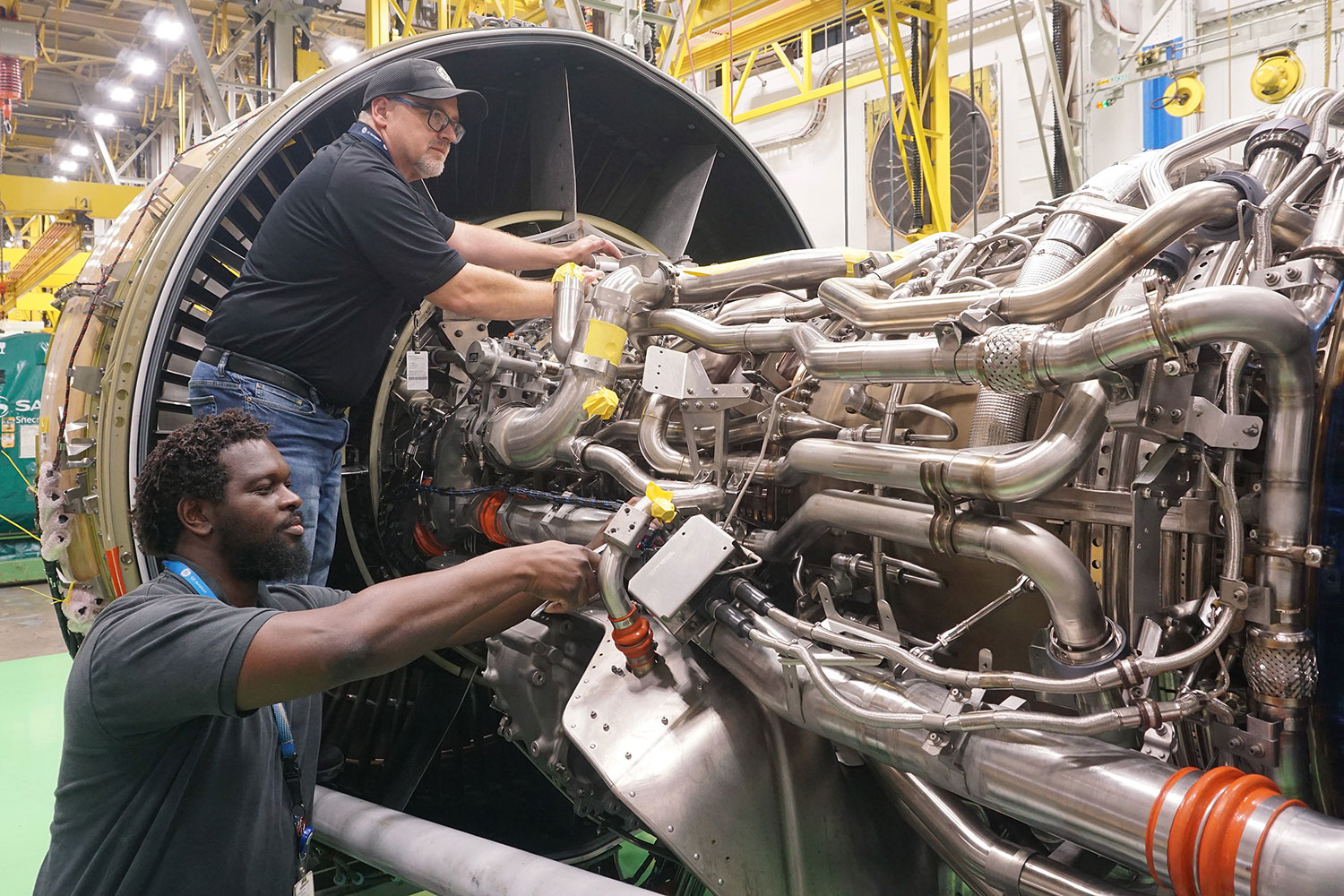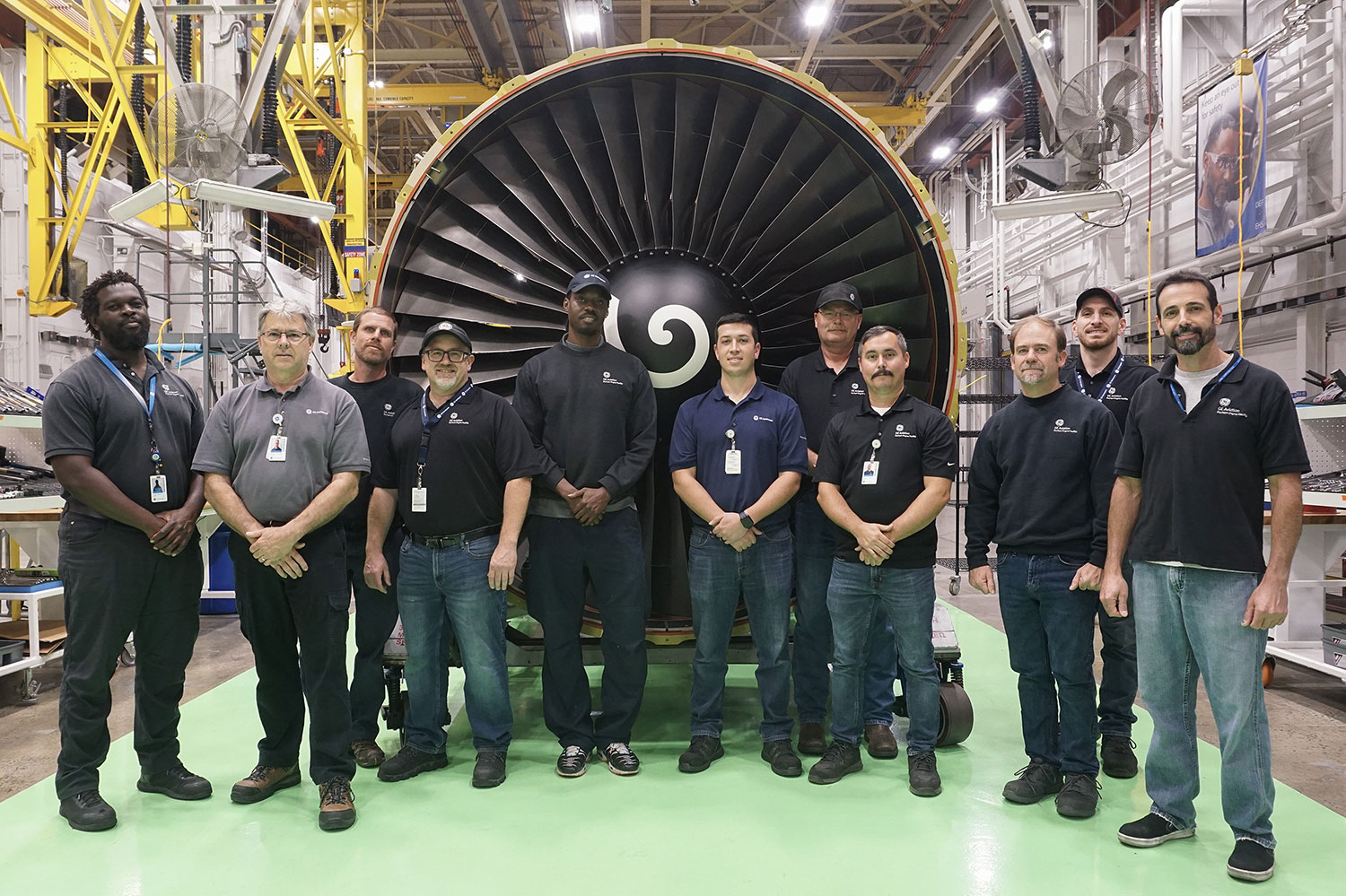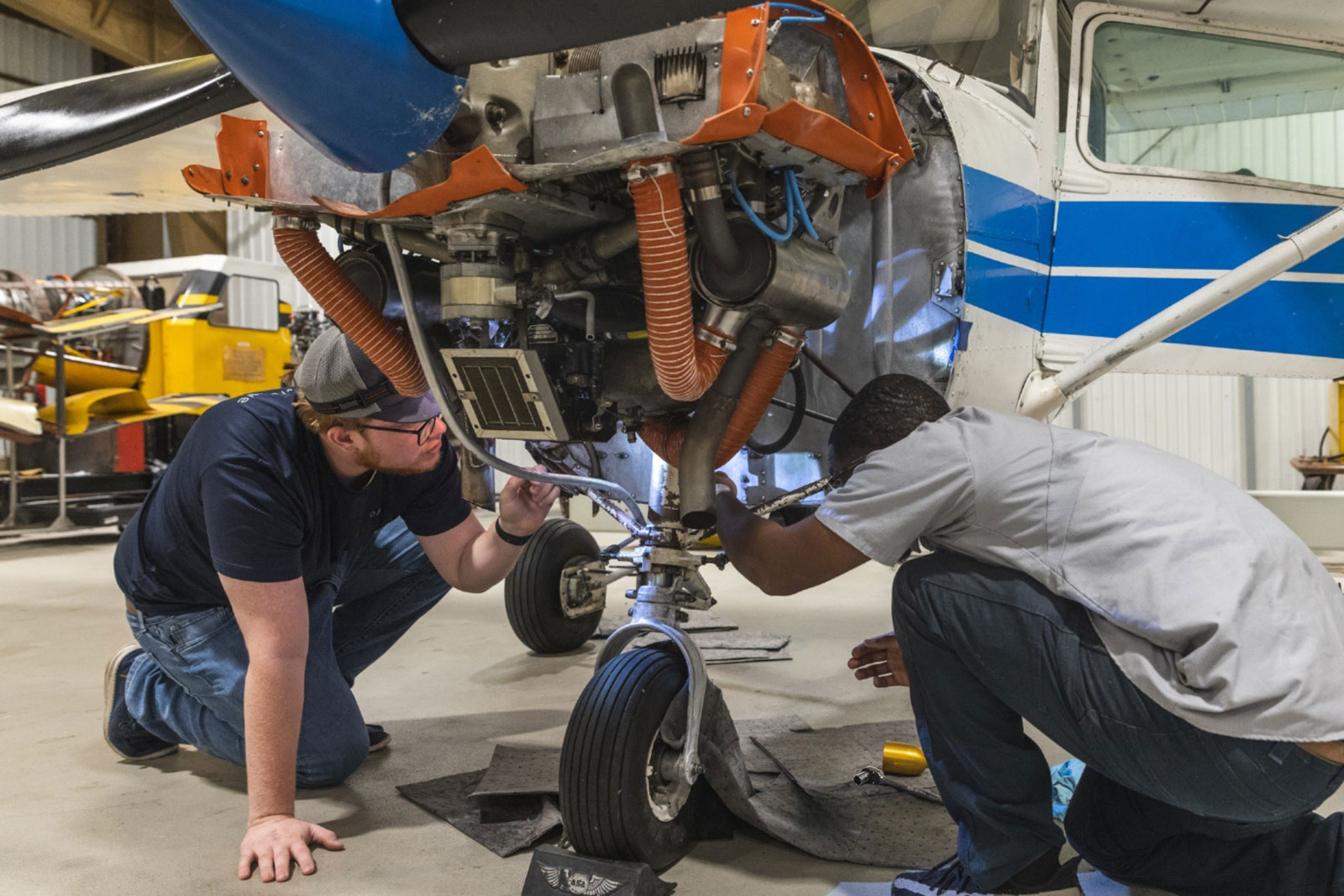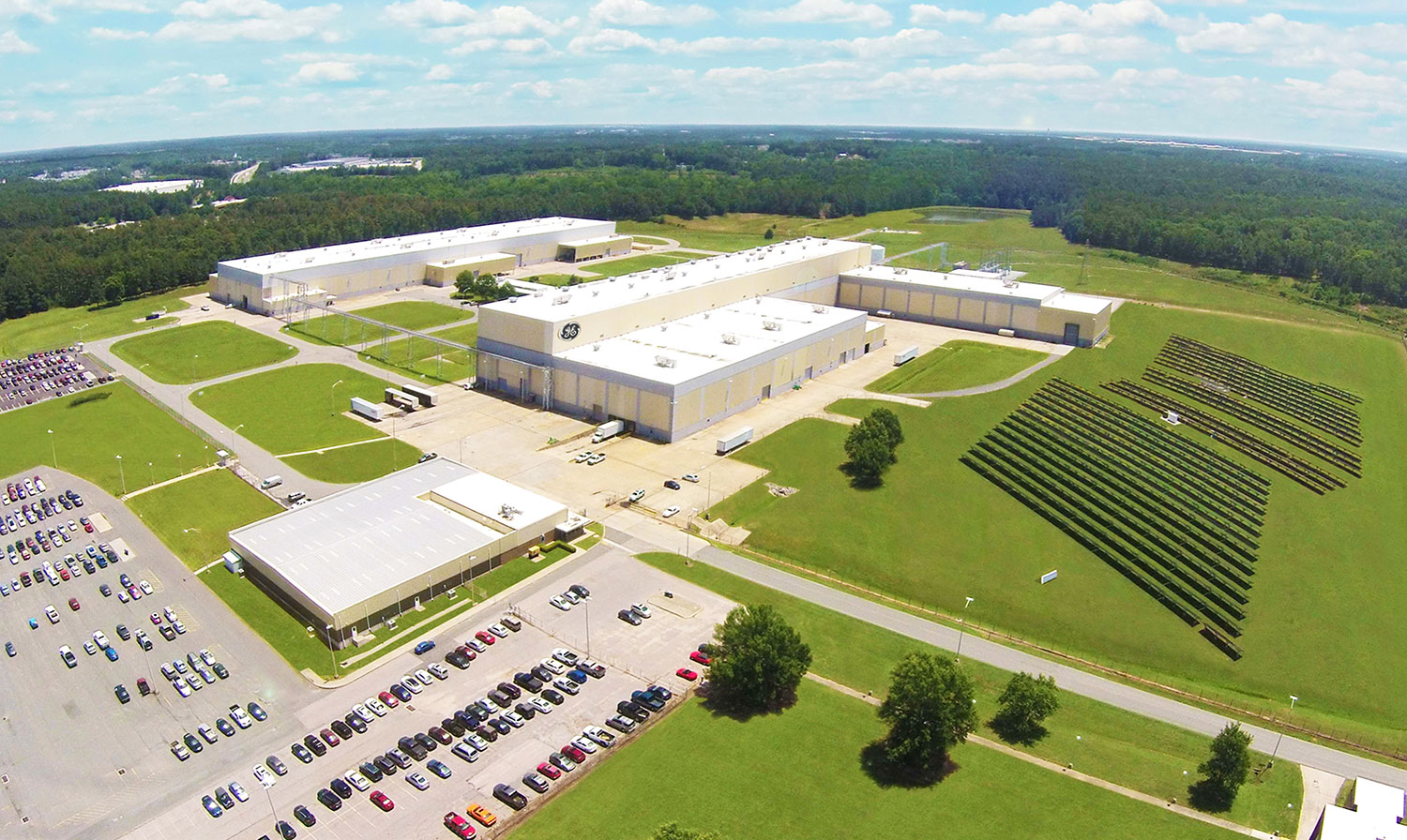Demand is soaring for aviation systems technicians, and big industry names like GE Aerospace are waiting in the wings for talented grads. Thanks to a unique partnership with the flight industry luminary, Wayne Community College students are launching lucrative careers straight out of the classroom.
“Everything we do is pretty much aviation related,” says Aviation Systems Tech alum Jeffrey Gollbach, who uses his WCC-honed skills to construct GE90 engines from the ground up as an Assembly Test Technician at GE Aerospace. “We build every component … It’s all hands-on.”

Growing the partnership
Success stories like Gollbach’s are the result of an unofficial, decades-long relationship between WCC and GE Aerospace, initially branded as GE Aircraft Engines upon its arrival in Durham, NC. Tasked with getting the GE90 engine project off the ground, the company insisted on a progressive, self-directed approach, hiring multiple WCC graduates to the original team of 12. Within months, the team would double in size, picking up two more WCC Aviation Systems Tech grads, including Gollbach’s co-worker, Assembly Technician Steve Saba.
“Over the years, we have partnered with WCC to provide tours and hire graduates of the program,” explains Saba. “Since we began hiring again in 2022 after the pandemic, we have onboarded five WCC graduates. Our expected attrition forecasts and production growth show that we will need to continue to hire through 2024.”
All told, more than 30 WCC alum have gone on to GE Aerospace careers, with Patrick Tobler, Greg Parker and Gollbach among the more recent grads currently employed at the Durham facility. According to Saba, the technology involved creates a need for specialized training, while the company’s unique philosophy calls for a certain level of self-motivation. Wayne Community College is one of few local institutions offering accessible, relevant training in the fast-growing industry, making it the ideal place to maintain a classroom-to-career pipeline.

“Our hiring process has always been very demanding … our expectations for interpersonal skills and teaming attributes are as important to us as a person’s technical abilities,” says Saba. “We know that people have different reasons for going into aviation. We want to educate the schools and students on exactly what we do and how we do it.”
Opportunities reach new heights
Wayne Community College’s FAA-approved program is more relevant than ever, with the industry expected to add more than 600,000 positions by 2040, according to the 2023 Boeing Pilot and Technician Outlook report. Already, salaries are sky-high in the aviation technology industry, with the average salary for aircraft service technicians, avionics techs, and inspectors topping $70,000.
“I have never seen a better time to enter the aviation maintenance field,” says WCC Aviation Systems Technology Instructor Mike Crumpler. “Ten years ago, we would typically have two to three employers visit to pitch their company … now, we are currently on track to have three employers come by and provide a recruiting presentation just this month.
“The competition is now between employers competing for our students.”

Quality training
WCC offers an associate degree pathway in Aviation Systems Technology in addition to diplomas in Airframe and Power Plant technology. Classwork focuses on aviation mathematics, FAA regulations, and theory, while high-tech lab facilities allow for hands-on training in aircraft engines, systems, components, inspection, and maintenance. But what makes the program unique, according to Crumpler, is the quality of the instruction and dedication of the teaching team.
“We currently have a team that is not just simply here to work their hours and go home,” he explains. “With students spending two consecutive years in training with us, it is difficult not to get to know them personally and become invested in their success.”
The program was the perfect launchpad for Gollbach, who found himself in largely familiar territory at GE. Every day, his team builds GE90 engines from their base components, balancing and assembling turbines, rotors and more. Once the engines are complete, the “testing” portion of his title kicks in.
“The technology is fairly similar,” says the proud WCC grad, reflecting on his time in the program. “Everybody that works here is a [certificated] A&P, which is what you’re going to Wayne for as far as getting your license.”
And while Gollbach’s job involves plenty of grinding – specifically of aircraft parts – it’s hardly a grind at the end of the day: “I think what’s helped me the most about Wayne was [that] we did a lot of group projects together — working with other people and trying to get a project done.”

Looking toward the future
As the industry evolves to increase demand for skilled technicians, WCC and GE Aerospace continue to look for ways to bridge the skills gap. The next step, according to Saba, may be launching a direct apprenticeship allowing WCC students to earn credit while working (and building exclusive skills) at GE Aerospace facilities.
Additionally, “we have considered ways to partner with WCC to reach out to local high schools to show the benefits of an aviation career path,” says Saba. “We feel that this is a win for both the aviation schools and aviation employers.”
Crumpler agrees and expects the GE-WCC partnership to expand in line with industry demands.
“With the market becoming so competitive, I believe that direct connections such as the one I feel like we are building with the GE Durham Engine Facility are going to be crucial in helping employers maintain staffing levels that will in turn keep them competitive as product and service providers in the aviation industry.”
Learn more about ready-for-launch opportunities in Wayne Community College’s Aviation Systems Technology program at waynecc.edu/aviation or contact Crumpler at smcrumpler@waynecc.edu or (919) 739-6824.

